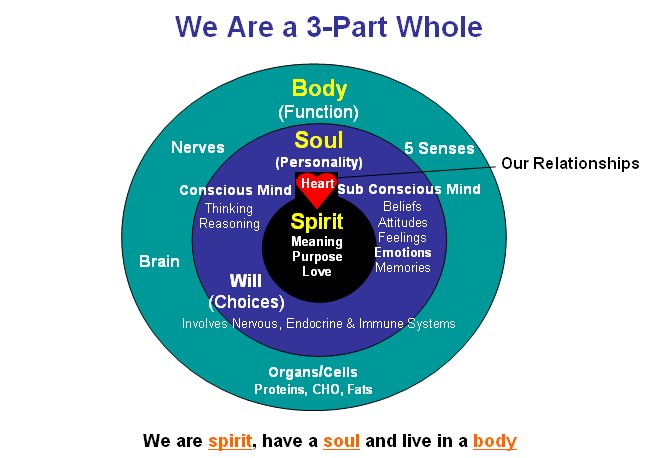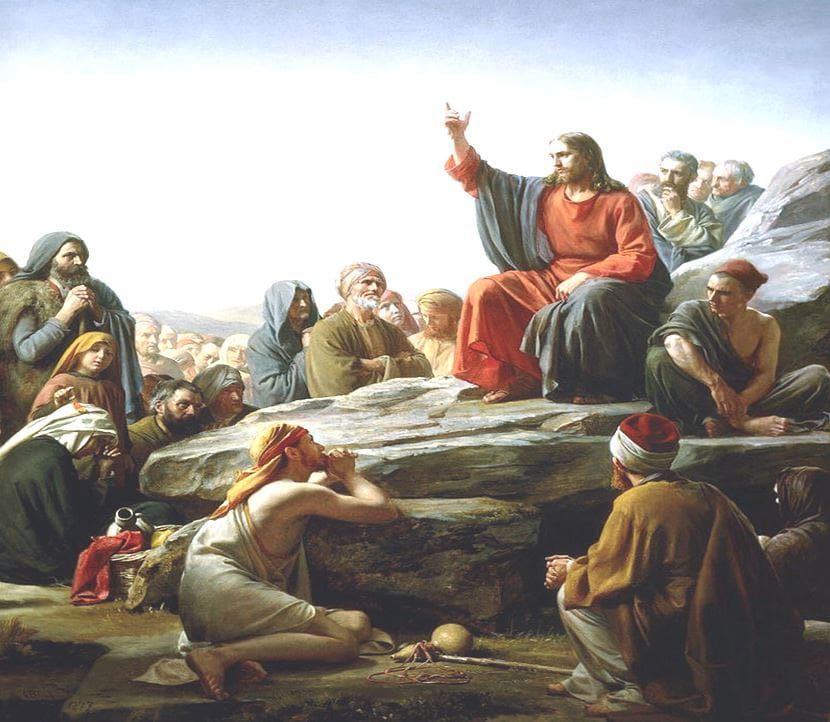Old Testament Reading: Jeremiah 2:1-13 – New Testament Reading: John 6:27-40
Behold The King “Life in the Kingdom of God” # 6 Matthew 5:6
In His Sermon on the Mount, Jesus outlined the characteristics of those who would be allowed into His kingdom. There is a valuable lesson to be learned in the structure of those beatitudes:
- The first beatitude (Vs. 3) and last beatitude (Vs. 10) give the same promise – “for theirs is the kingdom of heaven.”
- In between those two verses are two groups of four beatitudes, and both groups end with a reference to “righteousness.”
- The first three beatitudes have to do with “emptying and filling.”
- “Poor in spirit” – recognizing our spiritual poverty.
- “Mourning” – realizing what we deserve from God.
- “Meekness” – humbled by what we received from God.
- The fourth beatitude results from the maturity of the first three.
- Seeing God’s grace freely bestowed upon us, we “hunger and thirst” after such righteousness, and God fills us with Himself.
Jesus said all of this was necessary for us to “comprehend” the kingdom of God.
- Jesus told Nicodemus, “Ye must be born again” – meaning, our spiritual eyes must be opened to see our lives, this world, and the kingdom of God for what they really are, and not what we think they are, or should be.
- To be “born again” is more than just a religious experience; it is a complete transformation of the soul and spirit.
The second three beatitudes have to do with “fullness and persecution.”
- No longer broken and mourning over our sin, we are continually filled with God’s mercy, making us pure in heart and intentional peacemakers in the world – resulting in physical persecution.
- The evidence that we are prepared to enter into the kingdom of God is that we are filled with the righteousness of Christ, and the proof that we are filled with the righteousness of Christ is that we are being persecuted as Christ was.
“If the amount of persecution we are enduring is an indicator of the depth of our righteousness,
and therefore our relationship with Christ, what does the absence of persecution indicate?”
- The Jewish religion dictated the righteousness of the Scribes and Pharisees. It was all external and revealed no relationship with God at all – it was hypocrisy.
- The righteousness necessary to enter the kingdom of God can only be obtained through one’s personal relationship with God, through Christ – i.e., to be “born again.”
- Religion “puts on” acts of righteousness to draw attention to the person expressing it and to be applauded for it.
- Christians express the righteousness of Christ to draw attention to the One who saved them, and they will be persecuted for it.
“The less the church is persecuted, the more unrighteous it becomes.
The more the church is persecuted, the more it reveals the pure righteousness of Christ,
and the more effective it is in the world.”
The fourth beatitude is the pivotal point in a Christian’s walk and witness to the world. Unless that hunger and thirst for righteousness are in our heart:
- We shall not obtain mercy – Vs. 7
- We shall not see God – Vs. 8
- We shall not be called children of God – Vs. 9
- We shall not inherit the kingdom of God – Vs. 10
- The Void of Man’s Soul –
The “tripartite” nature of man says man has a body, soul, and spirit. (1 Thessalonians 5:23, Hebrews 4:12, Romans 7-8, Genesis 2:7)

• The “soul” is the theatre of Satan through which he tempts man
with the lust of the flesh, lust of the eyes and pride of life.
• The “spirit” is the theatre of the Holy Spirit, drawing us to see
our need for a Savior and Jesus as the Savior we need.
- God created man with a “homing device” – a “God-shaped-void” inside our soul that only He can fill with Himself, and our hearts are “restless” until they are at rest in Him.
- The Vanity of Man’s Substitutes –
Peter warned us to “abstain from fleshly lusts which war against the soul.” (1 Peter 2:11) Satan wants us to satisfy that hunger for God in our soul with earthly substitutes.
- Power – man can rise to the level of authority where he thinks he is equal with God or doesn’t need God. (Satan)
- Praise – man can receive so much praise from others for his work, he thinks he doesn’t need God. (King Nebuchadnezzar)
- Possessions – man can amass so much wealth by his own efforts he no longer sees the need for God. (Rich Fool)
- Pleasure –man can fill every day with only those events that bring him happiness, so he doesn’t need God. (Prodigal Son)
- Passion – man thinks if he gets actively involved in “religion,” it will prove he knows God. (Jeremiah 2:13)
- God created man with a thirst and hunger for Him. Jesus said He was the “bread of life” and the “water of life,” but man tries to fill that void with the things of the world, and is never satisfied.
- The Victory of God’s Salvation –
Jesus used the metaphors of “hungering and thirsting” to describe the three steps in our eternal redemption.
- Salvation – God imputes to us the righteousness of Christ and imputes to Christ the penalty of sin.
- Sanctification – God delivers us from the power of sin and conforms us to the image of Christ
- Glorification – God delivers us from the presence of sin by allowing us into His presence forever.
“If that “hungering and thirsting” for righteousness is constantly there,
we can be certain of our salvation.
But if it is not there, we need to ‘examine ourselves’, quickly,
‘to see if we are in the faith’.”







